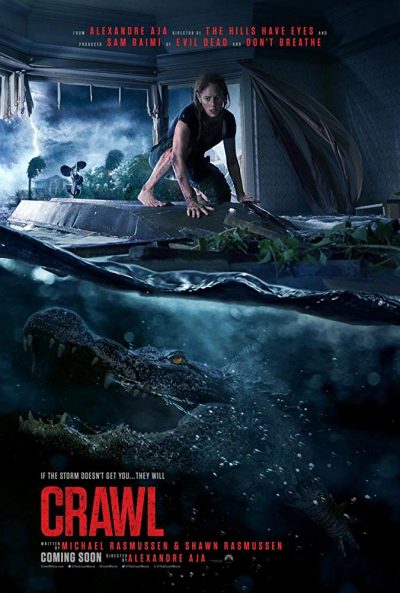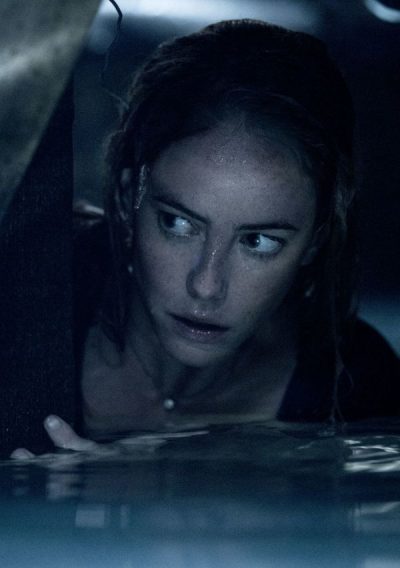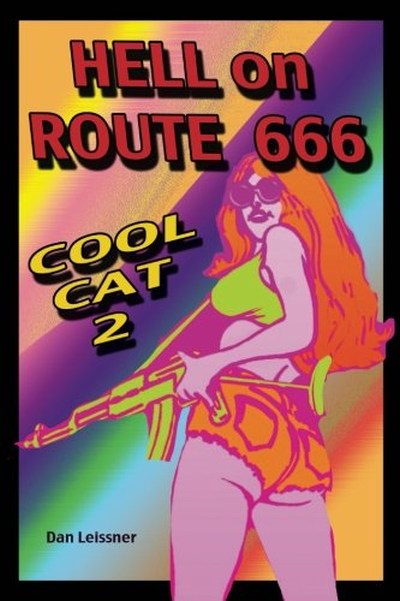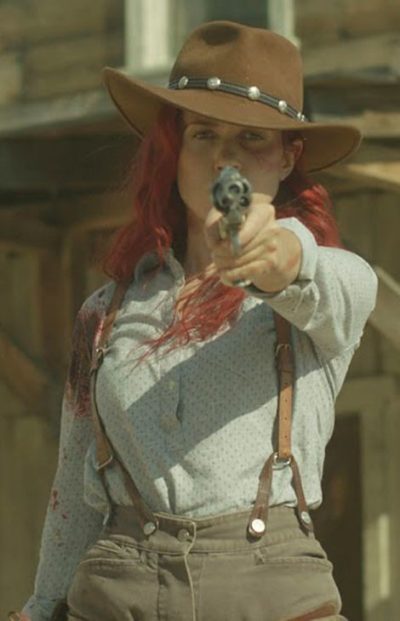★★★★
“The shark was otherwise engaged, torturing Blake Lively…”

 I have to say, I’m neither an expert on that strange sub-genre of “animal horror,” nor am I a particular fan of it. I’m mainly looking for a movie that can give me a suspenseful time in the cinemas. This is becoming more and more difficult. Partly because in by my time of live, I have has seen quite a lot of movies, of all sorts; but also because I feel modern film makers have forgotten how to create real suspense and a feeling of slowly rising and constant terror in movies.
I have to say, I’m neither an expert on that strange sub-genre of “animal horror,” nor am I a particular fan of it. I’m mainly looking for a movie that can give me a suspenseful time in the cinemas. This is becoming more and more difficult. Partly because in by my time of live, I have has seen quite a lot of movies, of all sorts; but also because I feel modern film makers have forgotten how to create real suspense and a feeling of slowly rising and constant terror in movies.
Mostly we are left with nonsensical pictures of man-killing animals that seem to have supernatural abilities. Usually it’s played for laughs because of all the silliness that comes with these kind of movies. That’s a pity. Sure, as a cinema-goer you can’t expect the greatness of classics like Hitchcock’s The Birds (1963) or Spielberg’s Jaws (1975) an ymore. But is it really that difficult? Create a modicum of interest for the main characters; introduce the predator; put the future victims in an isolated spot with the animals; and play with the ambiguity of the question as to whether said territory is safe at the moment – or not! That’s not rocket science, folks!
But for that you have to take the movie and the characters of your story seriously and the timing of every scene is essential: You’ve got to know where you set up your “beats”. How long can you ratchet up suspense before you’ve got to deliver? Where do you put the shocks, without which you can’t do a good horror movie? Do you put in a little bit of humor and to what degree? When is it time to give some relief to the audience, e. g. with character or relationship moments which seem obligatory background for these kind of stories? Whom do you kill? Whom do you have survive? And should you kill off the family dog or not? 😉
Alexandre Aja is a French film-maker who has got to show his talents across very different horror movies. His great High Tension, a psycho-thriller produced by Luc Besson, was followed by a The Hills Have Eyes remake, the good but not great Kiefer Sutherland vehicle Mirrors and later the (consciously) ridiculous Piranha 3-D. After a good start, in recent years it seemed as if he had lost “it” a bit. So, the offer from producer Sam Raimi to film an original story by Michael and Shawn Rasmussen came at the right time.
While the script has a few humorous moments (if you’re looking for them), it plays its story straight and Aja also focuses on creating genuine suspense and danger. Yet he also delivers in the important categories of shock and gore – something not really that evident from the trailers. That makes sense: you won’t show your climaxes in a trailer of an action movie. I’ve to say my expectations were pretty low when going into the movie. As a fan you know the score, so can a film still get you? To my surprise and delight, this was not only able to do that but also surpassed my expectations by far. But let’s start with some background info on what I want in such a movie.
Though you never expect a character study, I’m always happy if the characters get enough backstory or character traits, that they don’t appear as totally bland, two-dimensional audience stand-ins. That’s definitively true for Crawl‘s main actors Kaya Scodelario and Barry Pepper. Neither had that much luck with past roles: Scodelario, I remember from the Maze Runner movies but hardly seemed to register anywhere else much. I think I saw Pepper last with a supporting villain role in the True Grit remake (2010). I also need predators I like and respect. Some animals won’t really work for me, e. g. bears are simply too sympathetic. But for my money reptiles of all sizes always deliver the goods. And I’ve got an enormous respect for crocodiles or alligators.
 Next, the simple but effective story in a nutshell. Florida, hurricane time. Swimmer Haley Keller (Scodelario), who just failed in a swimming competition, receives a phone call from her sister She’s worried because she couldn’t reach their dad. Neither sister has had much contact with him, since their mother and father divorced; he was Haley’s former trainer, leaving their relationship no on the best of terms. The streets are beiing closed due to the dangers of the approaching hurricane and the rising water levels.
Next, the simple but effective story in a nutshell. Florida, hurricane time. Swimmer Haley Keller (Scodelario), who just failed in a swimming competition, receives a phone call from her sister She’s worried because she couldn’t reach their dad. Neither sister has had much contact with him, since their mother and father divorced; he was Haley’s former trainer, leaving their relationship no on the best of terms. The streets are beiing closed due to the dangers of the approaching hurricane and the rising water levels.
After finding her father’s house abandoned, save for his dog, Haley drives on to their former family house which he was renovating. Following the sound of a radio, she descends into the derelict cellar where she finds Dave, her wounded father (Pepper), who tells her that two alligators have entered the cellar through the drain. While they have some sanctuary in the cellar, they have to make an escape, due to the rising water that is coming up through openings in the cellar floor…
This may sound maybe a bit dry (pun not intended). But, believe me, the screenwriters and Aja have used every trick in the book to push and pull us, the audience, emotionally through our seats, in the same way the alligators push and pull the two likable yet imperfect protagonists through their surroundings. I was very pleasantly surprised about the high level of suspense and tension here. But also how the important ingredients mentioned above were perfectly blended together. The movie really creates suspense and grisly anticipation – yet also doesn’t forget that audiences need moments of relaxation so they can breathe a little, before the next furious attack or moment of extreme danger arrive. It’s a very well-written and executed entertainment, showcasing a kind of story-telling we don’t see much any more.
That said, the movie doesn’t reinvent the wheel. I personally wouldn’t be surprised if the Rasmussens saw two other recent animal horror movies with female leads: Burning Bright (2010) told the story of a young woman, locked together with her autistic brother in a house with a wild tiger by her evil uncle during a hurricane. And, of course The Shallows (2016, is it really already that long ago? It feels as if I saw the film just a couple of weeks ago…), which showed us Blake Lively on a rock in the rising water off an unknown beach while a blood-thirsty shark circles. As a matter of fact, both of these movies would make for a good triple-bill with this. And once Crawl comes out on DVD, it will find its place directly next to them on my shelves!
 What is it about all those young women fighting predators with large pointy teeth? I’m no psycho-analyst but I guess it has something to do with the re-integration of certain character traits into the female psyche. Whatever these may be. I do remember an early trailer when The Shallows came out that had a voice-over of what sounded like a life coach trainer, encouraging the Blake Lively character. I wonder if the idea of the father who trained his daughter to extraordinary achievements was inspired by that trailer?
What is it about all those young women fighting predators with large pointy teeth? I’m no psycho-analyst but I guess it has something to do with the re-integration of certain character traits into the female psyche. Whatever these may be. I do remember an early trailer when The Shallows came out that had a voice-over of what sounded like a life coach trainer, encouraging the Blake Lively character. I wonder if the idea of the father who trained his daughter to extraordinary achievements was inspired by that trailer?
Actually, this movie goes a different way from some recent action-heroine movies, that looked to discredit father figures or put them in a negative light. Haley may have felt betrayed by her parents divorce and her father “abandoning” her. Yet during the course of the story, she finds out that her parents were not as happy as she thought and that her dad, who always loved her and believed in her, is just a normal guy. [Though I must credit him for absolutely convincing me how every household needs a utility belt for hand tools!] Having to survive and fight for what is left of her family, with the support of her father makes Haley overcome her own anxieties, through facing more than one deadly situation. Certainly, crawling through the drain by which the reptiles came into the house evokes quite distressing birth trauma… That’s a very positive message. After so many negative portrayals of father figures and “family values”, I found this a highly sympathetic and, for 2019, unusually traditional depiction.
But it only has to work – and it does that very well. We are not immediately tossed into shock-infested seas, there’s a nice build-up, so when the gators appear they evoke the desired audience reaction.Haley and her father have enough back story that you are on their side and want them to survive, while at the same time worrying if they will make it. Despite being just that just 90 minutes, the movie is full of ideas of how the imprisoned father-daughter couple could get help from outside (which leads to an unpleasant looter-reptile encounter) or escape the cellar and the house. It really plays with giving you hope, just to take it away again. One of my favourite moments is when Haley and Dave make it to an escape boat outside, when the levees break and a wave of water throws them back into their house – only one floor higher. Well-timed elements of humor, such as Haley’s reaction when normal house spiders fall on her face, help make for very satisfying entertainment.
A fascinating side-fact is that the movie was shot in Belgrade, Serbia, which doubles for Florida perfectly. And a little “tidbit”: Scodelario’s and Pepper’s family name in the movie is “Keller”. For German cinema-goers that’s extremely funny as “Keller” is the German word for “cellar”. But one last question: will the dog survive? Watch the movie to find out! It gets four well-earned stars from me. Your mileage may vary, but honestly I think it’s on the same level as The Shallows, which also scored highly with me. So, if you enjoyed that, this should be right up your (flooded) street.
Dir: Alexandre Aja
Star: Kaya Scodelario, Barry Pepper





 High-schoolers Reilly (Albuquerque) and Erica (Wallace) have discovered a way to literally print money, forging hundred-dollar bills. They then use these to buy high-end fashion, and sell these ill-gotten gains on to their schoolmates for genuine cash. The more cautious Reilly wants to stop, but realizes she can do good by helping Karen (Butler), her aunt and guardian, who is in financial trouble. So when Erica is insistent they expand, Reilly goes along with it, and they use the school’s art-class resources to up their game, laundering the fake money through foreign exchange stores. However, this criminal empire comes under threat, after art teacher Tim Sylvester (MacCaull) discovers what they’re up to. Because by chance, he owes a large sum of money to some nasty people, and starts a relationship with Erica, to make sure she’ll keep working for his benefit. Worse still, the Secret Service have been alerted to the flood of funny money, so are also investigating.
High-schoolers Reilly (Albuquerque) and Erica (Wallace) have discovered a way to literally print money, forging hundred-dollar bills. They then use these to buy high-end fashion, and sell these ill-gotten gains on to their schoolmates for genuine cash. The more cautious Reilly wants to stop, but realizes she can do good by helping Karen (Butler), her aunt and guardian, who is in financial trouble. So when Erica is insistent they expand, Reilly goes along with it, and they use the school’s art-class resources to up their game, laundering the fake money through foreign exchange stores. However, this criminal empire comes under threat, after art teacher Tim Sylvester (MacCaull) discovers what they’re up to. Because by chance, he owes a large sum of money to some nasty people, and starts a relationship with Erica, to make sure she’ll keep working for his benefit. Worse still, the Secret Service have been alerted to the flood of funny money, so are also investigating. Helen (Fonseca) is struggling to come to terms with the sudden, unexpected death of her scientist husband, who was engaged on a top-secret project with his partner, Tomas (Morshower). Then things get truly weird: she experiences the mother of all blackouts, missing an entire week, and shortly afterward, Helen receives a phone-call warning her to get out of her house… from herself. It turns out, husband and Tomas had come up with a limited form of time-travel. As a result of this and subsequent events, there are now
Helen (Fonseca) is struggling to come to terms with the sudden, unexpected death of her scientist husband, who was engaged on a top-secret project with his partner, Tomas (Morshower). Then things get truly weird: she experiences the mother of all blackouts, missing an entire week, and shortly afterward, Helen receives a phone-call warning her to get out of her house… from herself. It turns out, husband and Tomas had come up with a limited form of time-travel. As a result of this and subsequent events, there are now  A solid if unremarkable Taiwanese kung-fu film, it’s set in 1887 and focuses on a mission to deliver a thousand taels of gold, which are intended for use in drought relief by another province. (Presumably) To avoid attracting unwanted attention, the delivery is kept very low-key. In fact, only two people are assigned as security for the gold: circus acrobats Lin Ying (Hsu) and Sao Wu (Chow). However, word apparently leaks out, and on their journey, they’re almost perpetually under attack.
A solid if unremarkable Taiwanese kung-fu film, it’s set in 1887 and focuses on a mission to deliver a thousand taels of gold, which are intended for use in drought relief by another province. (Presumably) To avoid attracting unwanted attention, the delivery is kept very low-key. In fact, only two people are assigned as security for the gold: circus acrobats Lin Ying (Hsu) and Sao Wu (Chow). However, word apparently leaks out, and on their journey, they’re almost perpetually under attack.
 Josephine “Joe” Cassidy (Eiland) is promised in marriage to Tom (Jenkins), the son of the area’s richest rancher, but her heart actually belongs to Jakob (Grasl), the Indian who is Tom’s adopted brother. The two lovers consummate their relationship when Tom is away, but the spurned fiancee hatches a long-term plan to get revenge. Years later, after becoming the local sheriff, he uses these connections to frame and execute Jakob for murder. Word of this reaches Joe, who conveniently for the plot is handy with a firearm, because her father (Cramer) was a renowned bounty-hunter, and passed on the necessary skills to her. Dying her hair red – hence the title – she sets out to take revenge on Tom, only for him to reveal that Jakob is not dead… Not
Josephine “Joe” Cassidy (Eiland) is promised in marriage to Tom (Jenkins), the son of the area’s richest rancher, but her heart actually belongs to Jakob (Grasl), the Indian who is Tom’s adopted brother. The two lovers consummate their relationship when Tom is away, but the spurned fiancee hatches a long-term plan to get revenge. Years later, after becoming the local sheriff, he uses these connections to frame and execute Jakob for murder. Word of this reaches Joe, who conveniently for the plot is handy with a firearm, because her father (Cramer) was a renowned bounty-hunter, and passed on the necessary skills to her. Dying her hair red – hence the title – she sets out to take revenge on Tom, only for him to reveal that Jakob is not dead… Not  Sei is a former assassin, who quit the industry after getting pregnant, then having her daughter stillborn. She has taken up a quiet life in the Belgian countryside, when she’s brought out of retirement by a shocking offer she received over the deep web. Her prospective employer says Sei’s daughter is not dead, and offers information in exchange for carrying out a job: breaking another assassin, the notorious Black Wolf, out of the Turkish prison where he is being held. After confirming with the doctor who was present that the claim of her daughter’s survival is true, Sei accepts the mission. However, it turns out she was set up as a patsy, and finds herself also incarcerated in conditions which seem not have improved much since Midnight Express.
Sei is a former assassin, who quit the industry after getting pregnant, then having her daughter stillborn. She has taken up a quiet life in the Belgian countryside, when she’s brought out of retirement by a shocking offer she received over the deep web. Her prospective employer says Sei’s daughter is not dead, and offers information in exchange for carrying out a job: breaking another assassin, the notorious Black Wolf, out of the Turkish prison where he is being held. After confirming with the doctor who was present that the claim of her daughter’s survival is true, Sei accepts the mission. However, it turns out she was set up as a patsy, and finds herself also incarcerated in conditions which seem not have improved much since Midnight Express. A painfully clunky mix of spy and crime thrillers, this really needs to decide which it wants to be. Alexandria Kingston – code name Griffin, in case you hadn’t guessed – was an abused child, with the good fortune to be rescued and brought up by Margaret Murphy, the head of Irish organized crime in Boston. Though to avoid Alex being targeted for leverage, she was never acknowledged to be part of the family. As an adult, Alex joined the CIA and became a top field agent, jet-setting over the globe on demand. But when her foster mother suffers a stroke, she returns to Boston to find herself in the middle of a war for control of the turf. The rival Killeen clan, sensing an opportunity, pounce. It’s up to Alex and her brothers to defend the family – and then take the battle to the Killeens.
A painfully clunky mix of spy and crime thrillers, this really needs to decide which it wants to be. Alexandria Kingston – code name Griffin, in case you hadn’t guessed – was an abused child, with the good fortune to be rescued and brought up by Margaret Murphy, the head of Irish organized crime in Boston. Though to avoid Alex being targeted for leverage, she was never acknowledged to be part of the family. As an adult, Alex joined the CIA and became a top field agent, jet-setting over the globe on demand. But when her foster mother suffers a stroke, she returns to Boston to find herself in the middle of a war for control of the turf. The rival Killeen clan, sensing an opportunity, pounce. It’s up to Alex and her brothers to defend the family – and then take the battle to the Killeens. briskly functional rather than particularly memorable: by which I mean, I read the book in fairly short order… only to discover, when I finished it, that I didn’t remember very much about it. Not even the heroine’s name. Mallory? Mindy? Miley? Definitely an M word… Ah, yes: Melody Cale. She’s an agent for the Geirty Solutional Diversity Group, a murky government organization – also known as the Get Shit Done Group – who “do what the CIA couldn’t… without having politicians, or reporters, looking over their shoulders.”
briskly functional rather than particularly memorable: by which I mean, I read the book in fairly short order… only to discover, when I finished it, that I didn’t remember very much about it. Not even the heroine’s name. Mallory? Mindy? Miley? Definitely an M word… Ah, yes: Melody Cale. She’s an agent for the Geirty Solutional Diversity Group, a murky government organization – also known as the Get Shit Done Group – who “do what the CIA couldn’t… without having politicians, or reporters, looking over their shoulders.” If you think children are of one mind with regard to the gun debate, thanks to the zealots of Marjory Stoneman, the alternative view portrayed by this movie will feel amazingly transgressive and almost alien. The world it depicts is one where schools will actually teach kids how to use guns safely, handing out gun permits, and a teenage girl can receive a treasured family heirloom, in the shape of a .30-30 rifle, passed down the generations. Hunting is a way of life, and an important resource, with a particularly strong matriarchal tradition, in which three generations of women will be going into the woods together. For 12-year-old Florence (Abas), it’ll be her first excursion: in a not-too-subtle parallel, she also gets her first period.
If you think children are of one mind with regard to the gun debate, thanks to the zealots of Marjory Stoneman, the alternative view portrayed by this movie will feel amazingly transgressive and almost alien. The world it depicts is one where schools will actually teach kids how to use guns safely, handing out gun permits, and a teenage girl can receive a treasured family heirloom, in the shape of a .30-30 rifle, passed down the generations. Hunting is a way of life, and an important resource, with a particularly strong matriarchal tradition, in which three generations of women will be going into the woods together. For 12-year-old Florence (Abas), it’ll be her first excursion: in a not-too-subtle parallel, she also gets her first period.